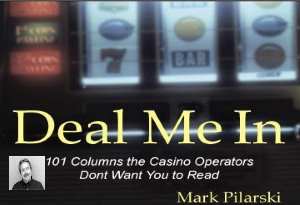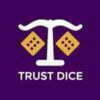Is there any value to playing poker online for free? Doesn’t it improve your Texas Hold’em skills with an outlay of real money? Nate J.
I can’t let it pass without mention, Nate, that I don’t play poker online, for cash or otherwise. I do shadow some of the online gambling sites to see what’s offered, but I stick with what I know, and worked in for 18 years, and that’s land-based casinos.
That said, as for FREE internet play, I’m not the biggest fan, and here’s why. When playing online where chips are entirely free, far too many players go “all in” on their first two cards on a game like Texas Hold’em. Yet, if you were go to a micro-stakes table where players are betting as low as 2-5 cents, you would see a lot more players wait until they have somewhat decent cards before making such aggressive plays.
For my part, I believe the best way to polish your poker skills without the expense of a live money game are with a computer. Poker software can be far superior to a human instructor for both training and drilling. The benefit of computer training is the facility to test strategies and examine mistakes made at no financial risk.
By accumulating data for later review, you can spot costly trends that you would want to avoid on a live game. Information like this would take you years to accumulate, let alone dollars lost in a poker room – or online, for that matter. Any knowledge obtained without a cash outlay will win you more money down the road, and I think, Nate, you’ll do it easier with poker software than with FREE internet play.
You seem to always recommend playing video poker over slots. Any particular reason why? Ginny L.
The main reason, Ginny, is that by choosing video poker, you greatly reduce the house’s edge on your play. Compare, for example, the less-than-one-percent house advantage in finely honed video poker play with the double-digit house advantage when you yank a handle. Which leads me to reason number two; player interaction. Playing slots takes very little use of your noggin. Insert coins, pull handle, and reach into other pocket for more money. Whereas, with video poker, you can give up five or more percentage points in long-term payback if you’re just winging it instead of using a mathematically derived strategy. But even with extemporization play, video poker returns are higher than reel slots returns.
So, Ginny, if you were interested in letting your brain share in the fun, along with far superior paybacks, I would always recommend playing video poker.
I was introduced to Switch Blackjack on a recent trip to Las Vegas. I enjoyed the game and am curious if the odds are much different than traditional Blackjack, and if traditional rules of doubling and splitting are the same? Dennis M.
Yes, Dennis, there is such a game where this cheating maneuver, swapping cards between two hands, is allowed.
Actually called Blackjack Switch, and not Switch Blackjack, it is a mutant form of blackjack where a player is dealt two hands and is allowed to trade cards between hands. Outwardly, Dennis, this seems like a great rule that favors the player, but unfortunately any gain is offset by the other rules that favor the house. Natural blackjacks are paid 1:1 instead of the standard 3:2, and a dealer 22 is a push.
Yet, even with rules that counter any advantage gained by being allowed to interchange your cards between hands, the house edge with perfect basic strategy, which is difficult and specific only to this game, along with the different rule variations from casino to casino, is relatively small, anywhere from 0.16% – 0.58%.
As for doubling and splitting, you may double on any 2 cards, double after a split and re-split up to four hands.
Gambling Wisdom of the Week: “Caught between the player’s hope and the house’s advantage is the dealer.” –H. Lee Barnes, Dummy Up and Deal




















